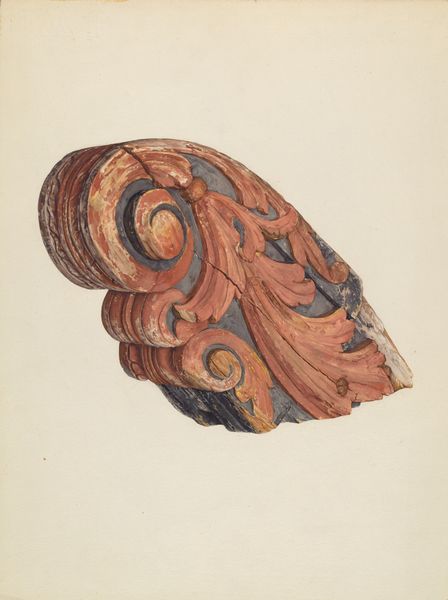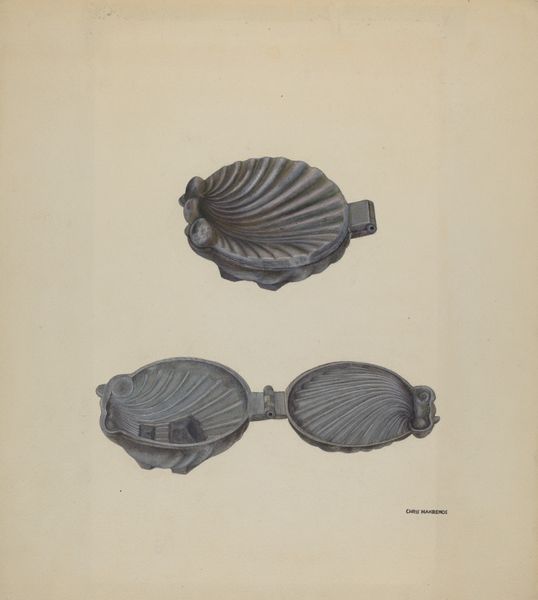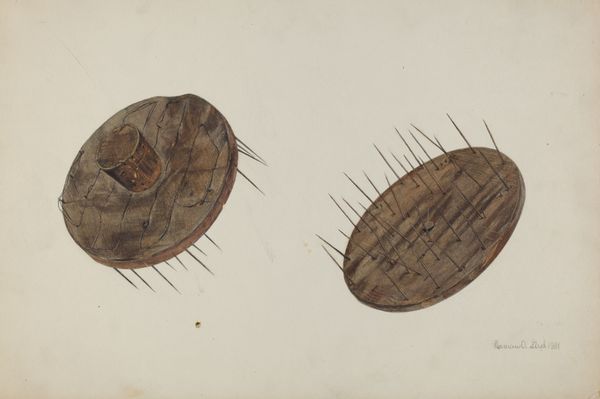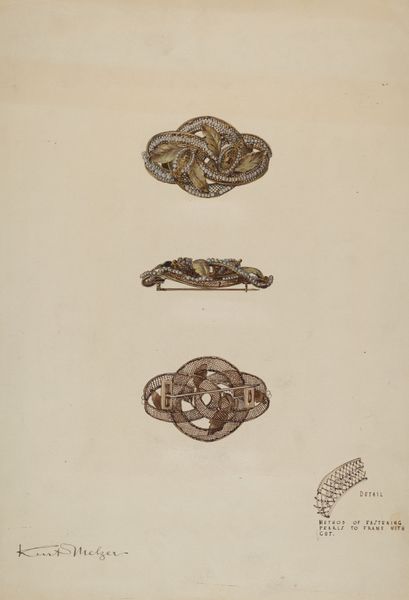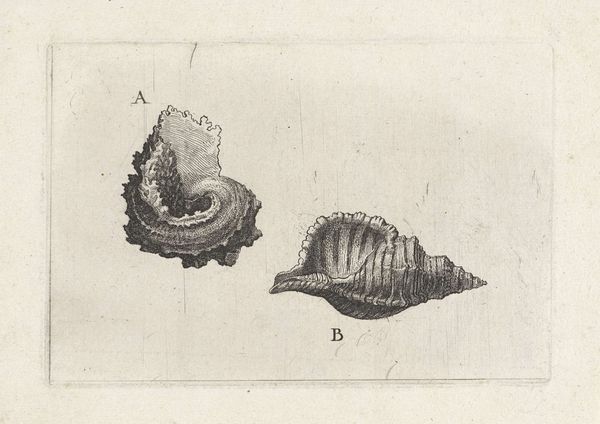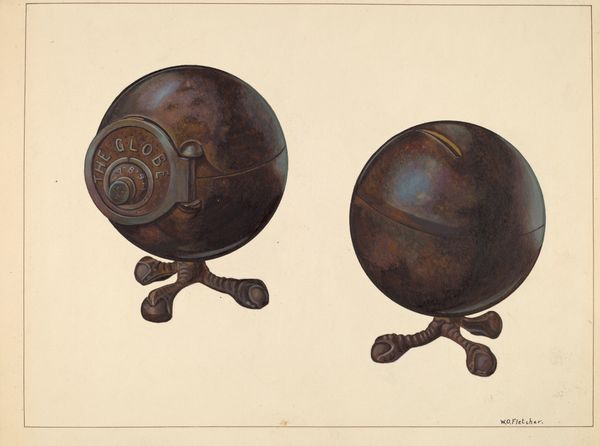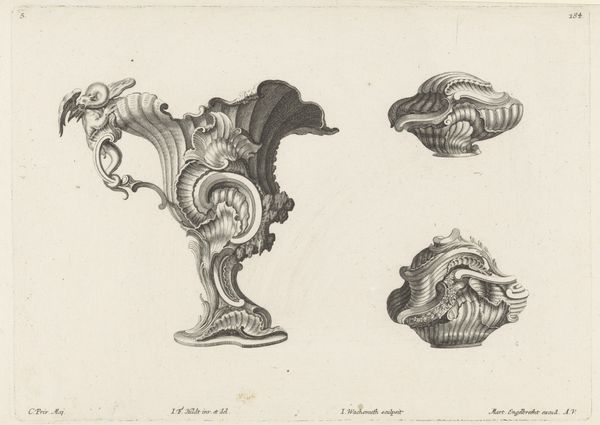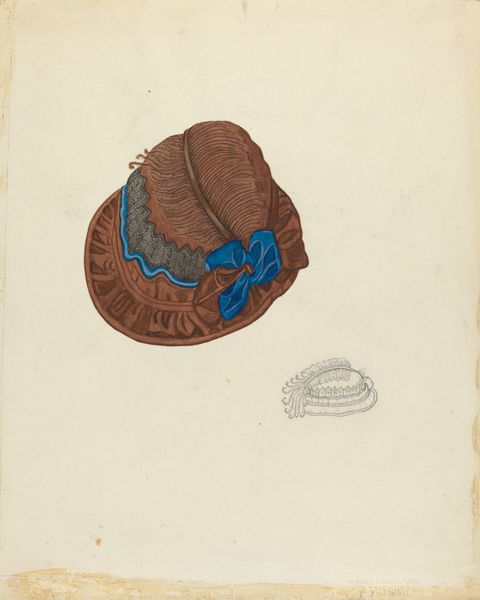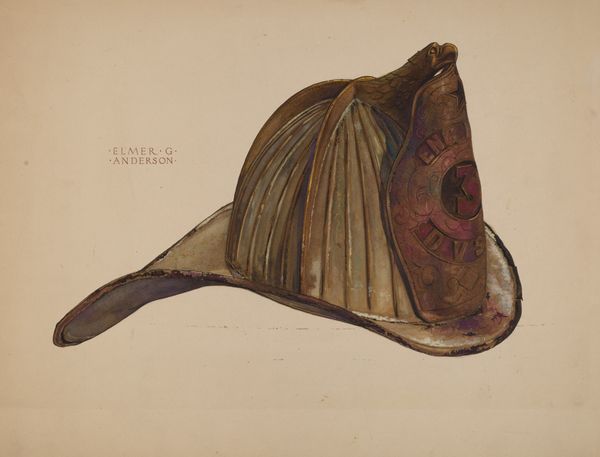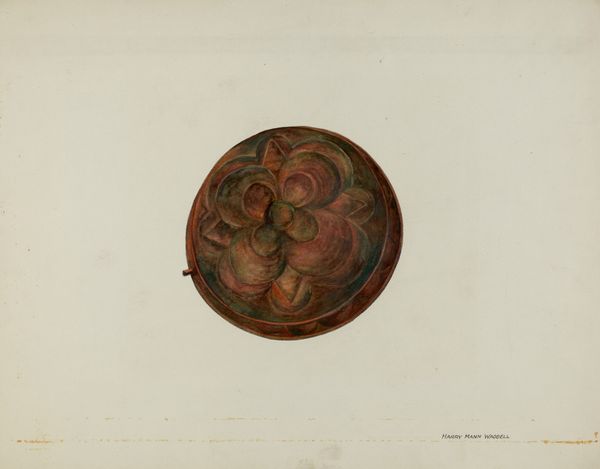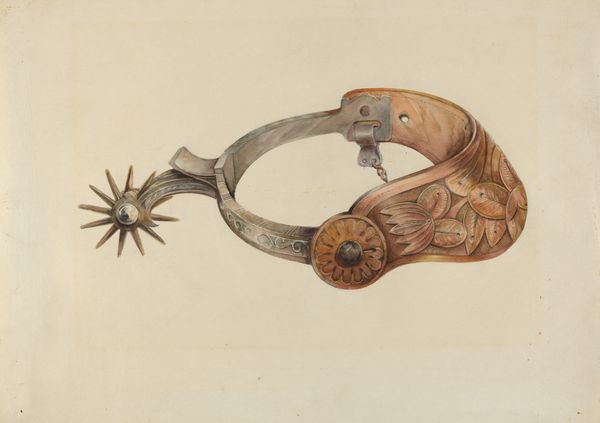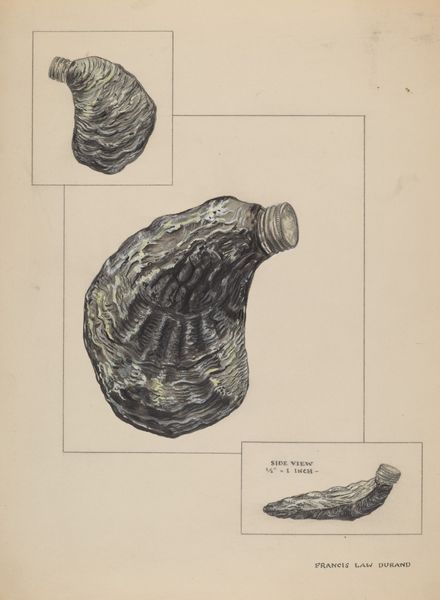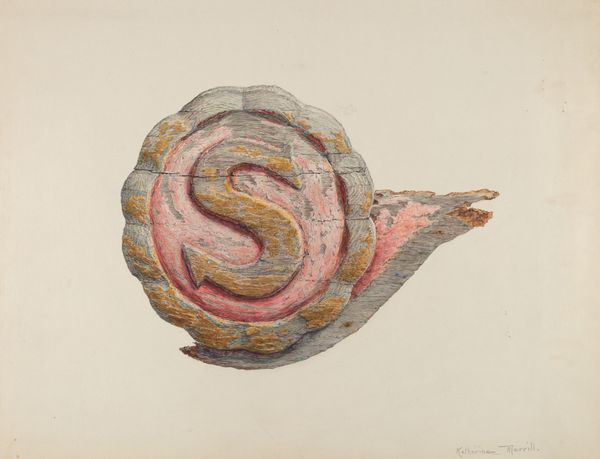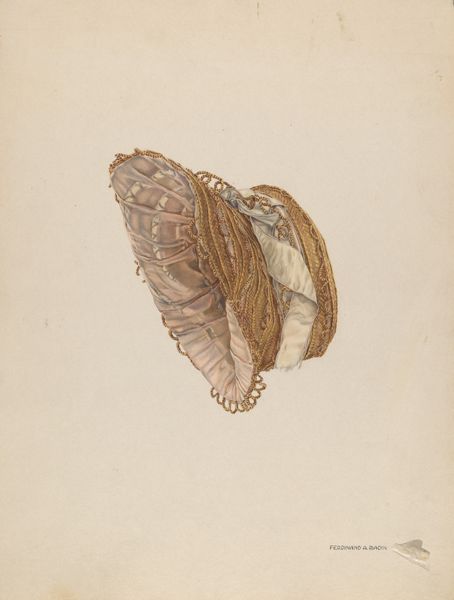
drawing, watercolor
#
drawing
#
watercolor
#
watercolour illustration
#
watercolor
Dimensions: overall: 22 x 29 cm (8 11/16 x 11 7/16 in.) Original IAD Object: 2 1/2" high; 4 3/4" long; 2 5/8" wide
Copyright: National Gallery of Art: CC0 1.0
Curator: It’s amusing, almost cartoonish, this "Shell Out" Bank drawn around 1938 by William O. Fletcher using watercolor. At first glance, it looks like a purely decorative piece. Editor: Yes, the almost iridescent hues grab your attention, don't they? There's something very peculiar, maybe even slightly ominous about these bejeweled sea creatures, posing like wealthy merchants on a shelf. The perspective gives each a strange authority. Curator: It makes me wonder about the socio-economic anxieties of the time. Shells, typically symbols of natural beauty and the sea's bounty, are here transformed into banks, repositories of wealth during the Great Depression. Were they mocking the pursuit of capital, highlighting how even nature could be commodified? Editor: I’m struck by the title, actually – "Shell Out." There’s a dark humor to it, almost as if the shells themselves are weary of guarding these precious little fortunes. They’re beautiful, no doubt, yet seem weighed down. Like reluctant treasurers. I wonder, did Fletcher imagine children gleefully feeding coins into this mouth-like opening on the left? Curator: Well, children were definitely the target. During that era, banks often used objects to incentivize saving from an early age and gain families as lifelong customers, a cynical angle to see sea-creatures turned into corporate assets. It says much about financial institutions in this time and how deeply rooted financial anxiety ran. Editor: Indeed. Now, decades later, the artist transforms something solid into something almost surreal. Fletcher, through his gentle use of watercolors, reveals that sometimes, even the sturdiest of facades can crumble with a splash of color and imagination. Curator: Exactly! He reveals the precarious balance of our financial constructs. The charm works but doesn’t hide the underlying anxieties. Editor: Indeed. In Fletcher's hands, the everyday object mutates into both playful form and melancholic social commentary. A powerful mix if you ask me.
Comments
No comments
Be the first to comment and join the conversation on the ultimate creative platform.
